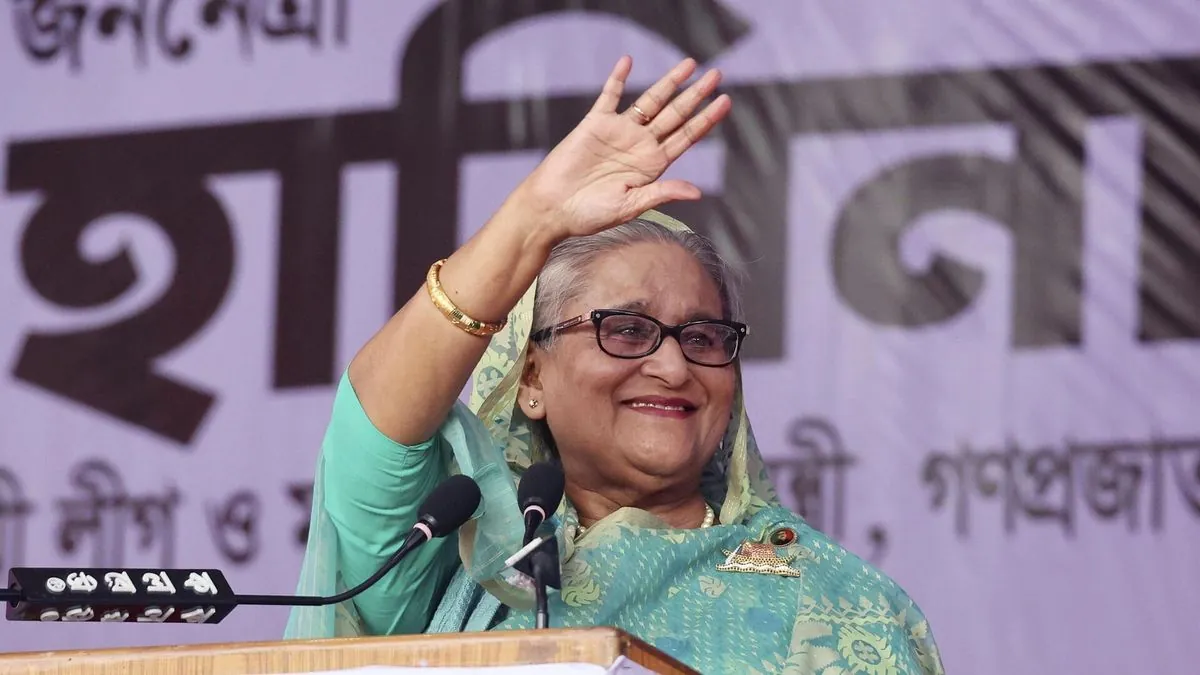US Denies Role in Bangladesh PM's Departure Amid Political Turmoil
White House refutes claims of involvement in Sheikh Hasina's ousting from Bangladesh. Interim government sworn in as country faces political upheaval following protests and controversial elections.

The United States has firmly denied any involvement in the recent departure of Sheikh Hasina from her position as Prime Minister of Bangladesh. This statement comes in response to allegations suggesting American interference in the South Asian nation's political affairs.
White House spokesperson Karine Jean-Pierre addressed the issue during a press briefing, stating, > "We have had no involvement at all. Any reports or rumors that the United States government was involved in these events is simply false."
The allegations, reportedly originating from Hasina herself, claimed that the US sought control over Saint Martin's Island in the Bay of Bengal. However, Hasina's son, Sajeeb Wazed, refuted these claims, asserting that his mother never made such statements.

Saint Martin's Island, Bangladesh's only coral island, holds significant ecological importance in the Bay of Bengal, the world's largest bay. This region has been subject to various geopolitical interests due to its strategic location.
The political landscape in Bangladesh has been tumultuous in recent months. Student protests against job quotas escalated into widespread demonstrations, ultimately leading to Hasina's departure. This marks the end of her 15-year uninterrupted rule, during which Bangladesh experienced rapid economic growth, averaging 6% GDP growth annually since 1996.
An interim government, led by Nobel Peace laureate Muhammad Yunus, was sworn in last Thursday. Yunus, who won the Nobel Prize in 2006 for his pioneering work in microcredit, now faces the challenge of steering Bangladesh towards new elections.
The US State Department had previously criticized the January 2024 elections, in which Hasina secured her fourth consecutive term, as neither free nor fair. This stance reflects ongoing concerns about democratic processes in Bangladesh, a country with a history of political instability and military interventions.
Bangladesh, one of the world's most densely populated countries, faces numerous challenges beyond its political sphere. The nation is particularly vulnerable to climate change, with frequent cyclones and flooding threatening its population and unique ecosystems, including the Sundarbans, the world's largest mangrove forest.
Despite these challenges, Bangladesh has made significant strides in reducing poverty and improving health indicators. The country has also gained recognition for its handling of the Rohingya refugee crisis, demonstrating its capacity for humanitarian action amidst its own domestic issues.
As Bangladesh navigates this period of political transition, the international community, including the United States, maintains a keen interest in the country's democratic future. The White House emphasized its position, stating, > "We believe that the Bangladeshi people should determine the future of the Bangladeshi government and that's where we stand."
This situation underscores the complex interplay of domestic politics, international relations, and economic development in Bangladesh, a nation that continues to play a significant role in South Asian geopolitics.


































